Why Marketing is Essential During a Recession
8 MIN READ
Welcome to the latest United States recession. For those of you keeping score, this is the fourth recession since the year 2000 (one more and we get one for free??). And before financial experts jump in to define—or redefine—what an actual recession is in regards to GDP numbers and the impact of job growth reports, let’s just agree to acknowledge that, whether or not the current state of the economy is officially in a capital-R recession, things aren’t great.
What does this mean for your brand and its marketing? Well, based on the title of this blog, you can see where we’re headed. Marketing remains essential, even in an economic downturn. Seriously.
Remember when yours truly didn’t abandon all hope and marketing during the early days of the pandemic? Instead we shifted gears and invested in community and brand building. It solidified our values and signaled to our audience that, even when times are tough, our purpose remains our number one priority. Now is the moment to do the same for your lifestyle brands.
Never Stop Investing in Business
You may need to re-budget or, at the very least, get a little creative when it comes to your normal spending habits, but removing marketing altogether is a recipe for disaster. Not only will your overall brand awareness take a major hit, your search rankings can suffer and, as a result, your brand loyalty will be impacted greatly—making it even harder to reestablish yourself when the recession ends and some kind of normalcy is restored.
It may seem impossible to continue investing but hold firm. Your competitors are cutting back on their spending, which means you have an opportunity ahead of you. That’s because you’re going to be strategic and hyper-targeted on your high-value audiences.
Do not, we repeat, do not, change your entire marketing program. Tweak it, tinker with it, and keep the faith. And since you already have a marketing strategy that is built to drive long term loyalty (right? right?!) you do not, and should not, need to make any drastic changes. Don’t give your customers another shock, instead focus on connecting with them in order to remain true to your brand purpose.
Understand Your Target Audience
Make note of your consumer’s changing habits. But what is the psychology behind recession spending? Here’s what the Harvard Business Review (HBR) has to say, “In frothy periods of national prosperity, marketers may forget that rising sales aren’t caused by clever advertising and appealing products alone. Purchases depend on consumers having disposable income, feeling confident about their future, trusting in business and the economy, and embracing lifestyles and values that encourage consumption.” Translation: don’t market for demographics, but, rather, market for values and to communities that are eager to find brands that stand for something, no matter the mood of the moment.
According to HBR, there are four consumer segments identifiable in the market—each that respond differently to the health of a current economy. Let’s explore each and find out how their spending habits may change according to their priorities.
Slam-on-the-Brakes
No surprise here, this group is going to stick to the essential purchases and make steep reductions to anything that may be seen as a luxury including products or services that can be put-off for the foreseeable future or that are expendable altogether. As a lifestyle brand with a more affluent audience, this is likely a segment that would typically not spend their resources with you anyway.
Pained-but-Patient
Hoping to remain loyal to their favorite brands, this segment will likely seek out favorable prices on essential purchases, even settling for cheaper, less-preferred alternatives during an economic downturn. What’s more, those luxury items or “treats” that we referenced above will be cut back significantly and anything that can be postponed will try to be by this consumer.
ComfortablY Well-Off
We’re now entering the audience segments that are more than likely your target—those that can afford to spend their money on brands that they trust and have identified as upholding values similar to their own. They will continue to buy essential products/services from you and likely do so at a similar rate to pre-recession levels. As for spending money on luxuries and things that can be postponed, they will continue to spend—be do so more judiciously by sniffing out better deals and negotiating whenever possible.
Live-for-Today
Here we find impulsive buyers that have the disposable income to support their purchases. They will return to their favorite brands time and time again doing so at normal levels but may be more reluctant than the well-off group to spend big on those products and services that can be put off temporarily. If anything, they will continue to spend whenever necessary but will likely avoid expanding their consumption to new types of purchases.
No one is “recession-proof” (except for the super-rich who seem to make money in these moments, but we’ll leave that to the politicians to address…or not), but when your consumer base is more affluent, it is likely that spending habits will not change significantly. However, they will be more conscious of what they buy and why they are buying it.
AFFLUENT AUDIENCE HABITS
According to our friends at Hubspot, 28% of affluent audiences are spending more consciously with 30% purchasing less. This should be a reassuring statistic for lifestyle brands like yours—one founded in purpose—as your value-based marketing can influence that 28%.
Even more comforting for marketers, “more than 10% still plan to invest in digital or online entertainment, around 7% would still invest in restaurants and bar outings—as well as education and academics, and over 16% would invest in clothing and apparel.” So, unlike the pandemic, we don’t anticipate economies close up completely for month stretches at a time.
During economic recessions consumers tend to dine out at more affordable venues, purchase less-durable goods, and go on less vacations (we’re upset too). And all of this data means one thing: your brand needs to find out what your customers’ needs are and adjust accordingly. Take advantage of social media listening tools to get a better grasp on what it is you need to offer at this moment.
Tried-and-True Recommendations
In addition to any insights you will find via social listening, we’ve put together a few recommendations based on our own “B&B R&D” that may help you share your brand message even more effectively during our current recession.
Continue to Build Brand Loyalty
As finding new audiences may only get more difficult, be sure to dedicate a significant portion of your marketing resources to your existing customer base. Make them feel seen, appreciated, and heard. Because, guess what? If you’re thinking about it, then other brands and competitors are too, meaning any reduction in your marketing leaves space for them to grab your customer’s attention.
But that doesn’t mean your ad budget should go to zero. As advertising platforms aren’t as saturated as usual, with some brands “protecting” their budget, you may find an opportunity to garner consumer eye-balls with a decent spend.
Positive & Relevant Tone
Similar to the pandemic, it’s important to remain positive in all of your digital messaging—especially social media. No nihilism or fear mongering here. Instead, be truthful about the state of the economy remaining fully transparent and honest on your channels. We promise, this type of tone will always be evergreen.
In line with being transparent about this latest dumpster fire we find ourselves in, create and share content that resonates with audiences. And that means relevant content. Craft messaging about your audience’s spending habits, what may be their current concerns, and other top-of-mind topics. Once again, when in doubt, take advantage of social media listening to keep your finger on the pulse.
Ultimately, we’re recommending empathy (in all things, always, but especially here). Seek to generate content that reinforces an emotional connection with your affluent audience signaling you’re here to support them now as you were pre-recession.
Lean on Your Marketing Pillars
Get it? Lean on the pillars. Not bad, right? Anyway, what we mean here is that your marketing efforts should continue to invest in its most important levers. For most this means social media, SEO, and email marketing. Content marketing takes time and requires a foundation—it doesn’t happen overnight (this isn’t Mad Men).
What content marketing does do is produce the highest quality traffic and leads, so if it isn’t on your roadmap, add it. Now. And if it is, don’t sacrifice it.
Crafting content for social media, utilizing the most relevant keywords, and deploying enticing emails, will all increase relevant website traffic and give you a strong online presence. Even more than that, by leaning on these content outputs, you’ll be poised to take advantage of an uplift in interest when we, inevitably (🤞), come out of the dip.
Know Your Data
You have the numbers. If you don’t, we have a far bigger issue to address, but for time, let’s assume you’re regularly producing metric reports and analyzing your marketing’s on-going performance. As a result of that assumption, you know which marketing areas of your brand’s program aren’t exactly knocking it out of the park.
Now it is the time to reduce any excess advertising spend or shift that precious budget to those outlets that are “doing the business” and performing at high levels for your brand’s goals.
A word of advice: distinguish between necessary and wasteful. Trimming your marketing budget requires a precise, steady hand—don’t start lopping off marketing initiatives all willy-nilly. In fact, it may be best to first adjust your KPIs and goals accordingly. Our Engagement Rate Calculator can help you gauge the current health of your marketing activities to guide you on where to allocate resources. And, as always, be sure to study the trend reports released by reputable sources to get a better idea of the current digital marketing landscape. We recommend Hubspot’s latest Consumer Trends Report.
When in Doubt Turn to the Experts
The health of your brand’s marketing is everything to us. And during a recession it’s easy to feel the pressure to perform out of fear of burning valuable resources and trying to remain afloat in a sea of uncertainty.
It’s why we’ve developed our Emerging Brands Program: to help brands like yours build and grow the foundational elements of its marketing programs. We work with you to focus on the essential marketing levers that you should be pulling in lean times and periods of prosperity. Just provide us your brand’s relevant information and download our deck today to learn more.












